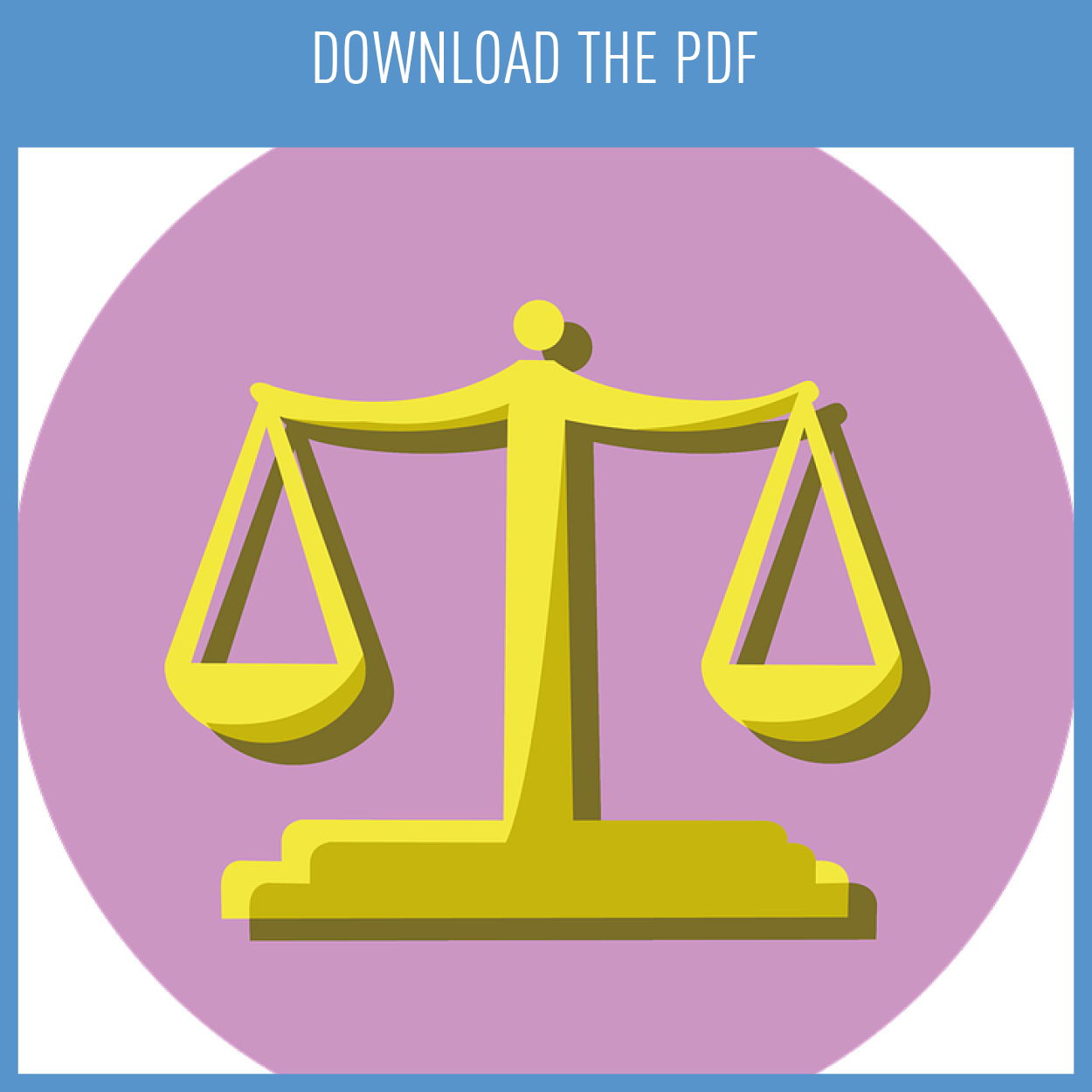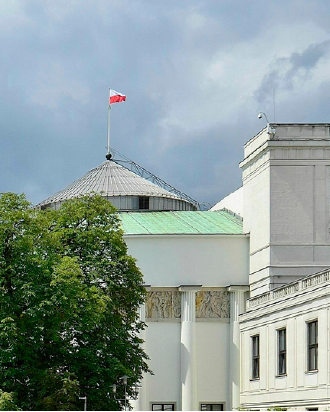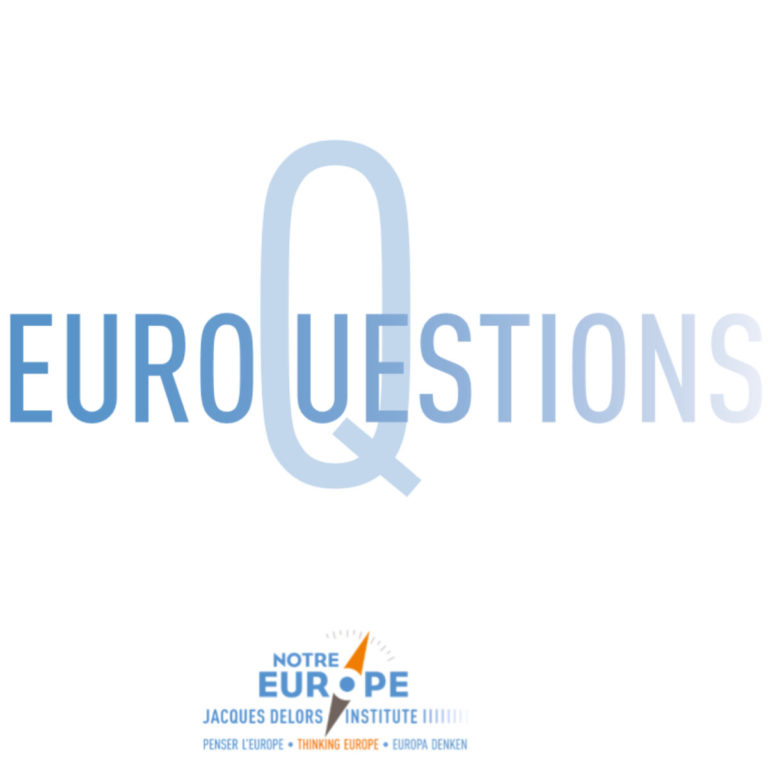Blog post 200623
Crisis Notebook
LET’S ARM EUROPE AGAINST VIOLATIONS OF THE RULE OF LAW
This Note is the third in a series of reflections of members of the “Observatoire politique du Parlement européen”
of the Jacques Delors Institute. These reflections have been inspired by the current crisis.
BY FABIENNE KELLER
Member of the “Observatoire politique du Parlement européen” of the Jacques Delors Institute, and European Deputy. She is also former Mayor of Strasbourg.
In times of crisis, we lose our bearings and our certainties are thrown into disarray. The near future becomes unpredictable and uncertain. It is a difficult climate for all citizens enduring new constraints as well as for political decision-makers. To deal with Covid-19, they had to take significant measures while being faced with many unknown factors concerning the virus and its propagation, and the collective lack of knowledge on managing a health crisis. Our society is not ready for pandemics or emerging diseases.
Under these exceptional circumstances, values and principles provide valuable insights for responding efficiently, while continuing to promote citizens’ rights and the general interest.
Yet, during the health crisis, several governments of the European Union were responsible for violations of the rule of law that were as unprecedented as they were unacceptable.
The European Union is based on a community of values
European integration, as intended by the Founding Fathers, is based on respect for Human Rights, freedom and democracy.
In 2007, at the signing of the Lisbon Treaty, these values were enshrined in Article 2 of the Treaty on European Union:
The Union is founded on the values of respect for human dignity, freedom, democracy, equality, the rule of law and respect for human rights, including the rights of persons belonging to minorities. These values are common to the Member States in a society in which pluralism, non-discrimination, tolerance, justice, solidarity and equality between women and men prevail.
From 2007 onward, the Treaties were also supported by the Charter of Fundamental Rights of the European Union, thus acquiring a binding force. According to the Charter:
The peoples of Europe, in creating an ever closer union among them, are resolved to share a peaceful future based on common values.
The adoption of the Lisbon Treaty therefore has a strong symbolic and legal value. By ratifying the Treaty, each State has expressed its support for the “community of values” of the European Union and has undertaken to respect it. Thus Article 7 of the Treaty provides for a new instrument to suspend the rights of a Member State that has breached these values of the Union.
But one cannot fail to observe that this Article 7 does not make it possible to prevent such violations to fundamental values. It enables dialogue between the States and the Commission, but the decision rests uniquely with the Council, acting unanimously.
The Covid-19 crisis increased pressure on the EU’s fundamental values
This crisis revealed the true face of populists.
Political leaders took advantage of an unprecedented health situation to disproportionate and unlimited powers to themselves.
In Hungary, Prime Minister Viktor Orban passed an incredible emergency law, giving him full powers for an indefinite period. The high point is that it was up to the executive, therefore Orban himself, to decide when these extraordinary powers would cease. Although this law was lifted in late May, no leader should be allowed to have such a concentration of power.
In Poland, the head of the ultra-conservative majority PiS, attempted a coup in parliament to keep the presidential elections in May by proposing to generalise postal voting. This proposal was finally rejected after several weeks of ongoing protest from opposition parties and civil society. Outgoing president Andrzej Duda, who is campaigning for re-election, is taking advantage of the epidemic to be the only candidate to get full media coverage.
These recent events add to numerous violations of the rule of law in Hungary and Poland in recent years. “Article 7 proceedings” have been ongoing in both of these countries since 2017, in particular for serious obstruction of the independence of the judiciary. But none of these procedures to date have seriously worried the leaders responsible.
Freedom of the media is also experiencing numerous setbacks in some Member States and was even further undermined during the health crisis. At the initiative of several parliamentarians, a working group was created at the European Parliament to promote media pluralism in Europe.
In recent years, populist regimes have come to power in our cities, our regions, and right up to the top of the State, with great promises. We observe, unsurprisingly and bitterly, that it is now these regimes that are flouting the fundamental principles on which our society is built: freedom, democracy and the rule of law.
Nothing, not even the current health crisis, justifies such authoritarian manoeuvres. The rights of citizens are not protected by silencing all forms of opposition.
Three proposals
To face this crisis, Europe needs strong executives. The adoption of emergency laws in the face of the Covid-19 crisis is legitimate and necessary. During these periods, our governments must be able to take decisions with the necessary responsiveness and efficiency.
At the same time, we cannot remain silent before the trampling down of our common values, which are the soul of Europe. It is time to arm Europe with effective tools.
Firstly, in an Appeal co-signed by 86 European parliamentarians and Think Tanks, we propose that core principles should be laid down at the European level to provide a framework for exceptional laws in times of crisis. These principles could be proposed and debated as part of the Conference on the Future of Europe, which could begin in the autumn.
We suggest that each emergency law should be accompanied by a “self-destruction” clause stipulating that it should cease to apply automatically at a predetermined time (e.g. one year) and that its provisions of an exceptional nature should all be cancelled at the same time.
As established case law and democratic practice have prescribed, exceptional measures may be cancelled before the end of the term by a parliamentary vote, if the end of the crisis so permits. They must be proportionate and limited to what is strictly necessary. They also must be adopted by the national parliaments.
The latter must be able to exercise their duty of scrutiny of the executive on a regular, independent and public basis. This counterweight is one of the indispensable attributes of any democracy, along with the independence of the judiciary, freedom of the media and the civil society. These are essential components of democratic life and a parliamentary majority is not enough to protect it. In Europe’s past, there have been majorities that have abused their power and led their citizens to dictatorship. Its history should enlighten it and make it react strongly.
Secondly, the European Commission, the Council and the Court of Justice of the European Union must use all the tools of European law to take actions against Member States that deviate from democratic practices and to apply to them the sanctions provided for in the Treaties. It is also necessary for the European Parliament to be more involved and informed in due course of the progress of these proceedings.
We should also cooperate more closely with the Council of Europe. In particular, by building on the extensive work and expertise of the Venice Commission, which maintains exchanges with the 47 members of the institution and supports governments in their reform efforts. The European Court of Human Rights (ECHR) also ensures observance of the fundamental values of the Union and its decisions must be fully applied by the Member States.
Thirdly, we defend the introduction of effective conditionality on the European budget and the EU Recovery Plan in terms of observing the rule of law. In the case of non-observance of the fundamental values, payment of the European funds to the governments concerned would be stopped and the European Commission would take over management of the funds to allocate them directly to the final beneficiaries, namely SMEs and companies, local authorities, associations, researchers and students. This would in fact mean a return to the management model of European funds during the process of pre-accession of a country to the European Union, which is in fact intended for State structures that are not yet fully effective. This new financial lever could be a powerful tool to ensure respect for the fundamental values.
On 27 May last, the President of the European Commission, Ursula von der Leyen, in her speech before the European Parliament on the Recovery Plan, recalled her desire to make the future European budget 2021-2027 and the Recovery Plan conditional on respect of the rule of law. It is now time to work on concrete proposals to translate this principle into genuine action.
It is by defending these fundamental values that are dear to us that together we can come out of this crisis on top, anticipate future crises and reinforce the European project.
SUR LE MÊME THÈME
ON THE SAME THEME
PUBLICATIONS
Making health a European priority

EU ENLARGEMENT AND PRE-ACCESSION ASSISTANCE IN THE NEXT MFF

Une victoire à la Pyrrhus des « illibéraux » ouvre la voie à un réengagement européen de la Pologne

MÉDIAS
MEDIAS
« Pologne, la puissance européenne de 2025 ? »

Conseil de l’UE : pourquoi la présidence de la Pologne sera particulièrement scrutée

Viktor Orbán, central à l’internationale, marginal en Europe ?

ÉVÉNEMENTS
EVENTS
Euroquestions #66 | Between the Slovakian and Polish elections, where is Central Europe heading? [FR]

Euroquestions #61 | Hungary and Poland´s access to EU funds and the rule of law

Euroquestions | The Rule of law conditionality mechanism applied to Hungary

Euroquestions | Czech Presidency of the Council of the EU: what agenda? [FR]

“I see EU”: crossed views on the European Union

TOWARDS A EUROPEAN HEALTH UNION – Prevention, crisis management, multilateralism | Presentation of the report published in December 2021 [FR]

40 YEARS AFTER THE STATE OF SIEGE IN POLAND: SOLIDARITY, THEN AND NOW. 1981-2021, WHAT HAPPENED TO OUR HOPES? [FR]

Euroquestion | Quelle gestion de l’endettement public à la suite du Covid ?

Visioconférence : Pandémie – L’Europe de la relance

Euroquestions | Can European funds guarantee the rule of law ?

Le monde en crises : impacts de la COVID-19 sur le commerce international

Euroquestions | The ongoing negotiations on the next Multiannual Financial Framework (MFF) and the European Recovery Plan: the state of play [Traduction simultanée vers le français disponible]

Wébinaire | Préparer un avenir propre et résilient pour les villes européennes

Negotiating the Future EU-UK Relationship in times of Pandemics

WEBINAR | A European Border Carbon Adjustment proposal

WEBINAR | The day after the European Commission’s Post-Covid economic recovery proposal

Wébinaire | Présentation du rapport “Les français et l’Europe entre défiance et ambivalence”

Webinar | Greener After – A Green Recovery Stimulus for a post-COVID-19 Europe

Green Recovery Post Covid-19: European or National Strategies?

Quel rôle pour l’Europe dans un monde post-Covid ?

WEBINAR | Overcoming Covid-19 crises by building a clean and resilient Europe

LIVE STREAM | Digital sovereignty in the age of pandemics

















